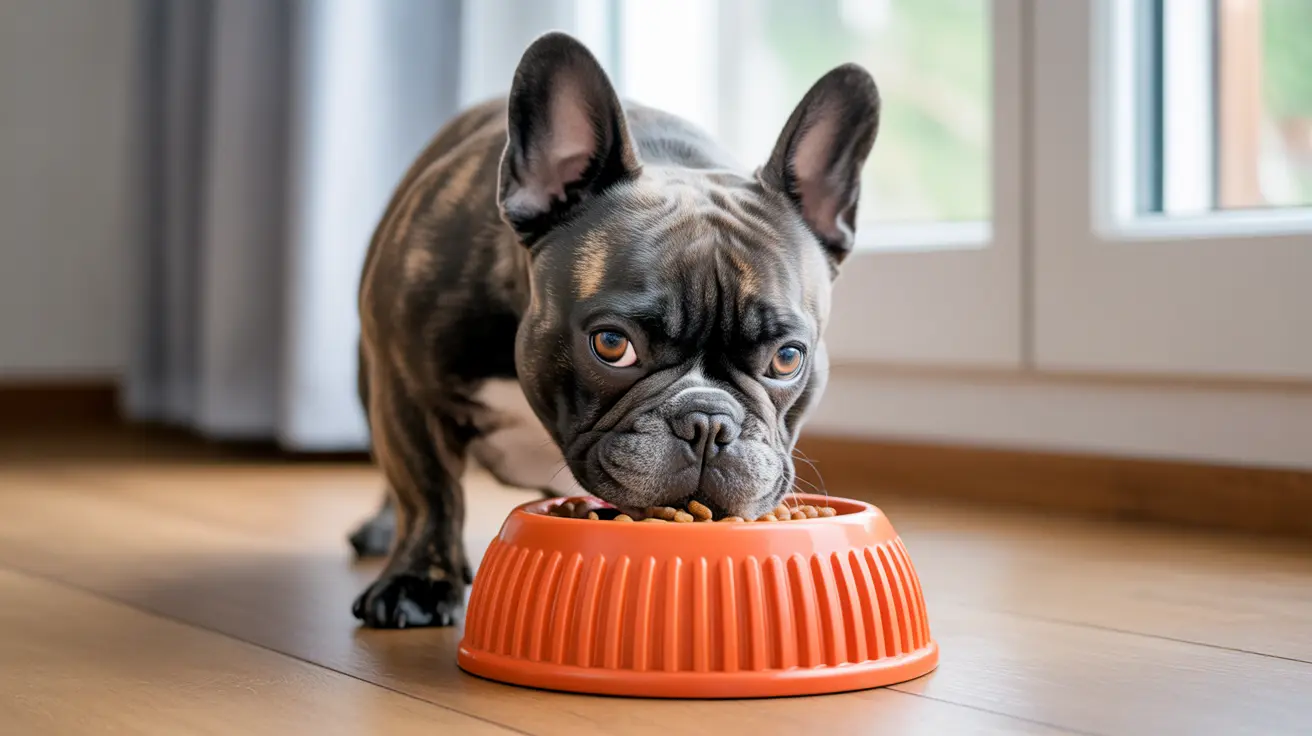If you've noticed your dog coughing after eating, you're not alone. This common issue can range from a simple case of eating too quickly to more serious underlying health conditions. Understanding the root cause is crucial for providing the right care and knowing when to seek veterinary attention.
In this comprehensive guide, we'll explore the various reasons behind post-meal coughing in dogs, identify warning signs, and discuss practical solutions to help your furry friend eat more comfortably.
Common Causes of Dog Coughing After Meals
Eating Too Quickly
Many dogs, especially food-motivated breeds like Labradors, tend to gulp their food without properly chewing. This rushed eating can lead to:
- Food particles irritating the throat
- Accidental inhalation of kibble
- Choking or gagging episodes
- Increased risk of regurgitation
Underlying Medical Conditions
Several health issues can trigger coughing during or after meals:
- Kennel cough (infectious tracheobronchitis)
- Tracheal collapse
- Laryngeal paralysis
- Megaesophagus
- Respiratory infections
Breed-Specific Considerations
Brachycephalic Breeds
Flat-faced dogs like Bulldogs, Pugs, and French Bulldogs are particularly susceptible to eating-related coughing due to their unique anatomy. Their shortened airways and compressed facial structure can make proper eating and breathing more challenging.
Small Breeds
Yorkshire Terriers, Pomeranians, and similar small breeds are more prone to tracheal collapse, which can cause chronic coughing that worsens during eating or excitement.
When to Seek Veterinary Care
Emergency Warning Signs
Contact your veterinarian immediately if you notice:
- Severe or persistent coughing
- Difficulty breathing
- Blue-tinted gums
- Excessive drooling
- Loss of appetite
- Lethargy or weakness
Prevention and Management Strategies
Slow-Feeding Solutions
Implement these practical solutions to prevent rapid eating:
- Use slow-feeder bowls with maze-like patterns
- Divide meals into smaller portions
- Try puzzle feeders or food-dispensing toys
- Place a large, smooth stone in the food bowl (ensure it's too big to swallow)
Dietary Adjustments
Consider these feeding modifications:
- Moistening dry kibble
- Switching to smaller kibble size
- Using elevated food bowls when recommended
- Feeding a specialized diet based on veterinary advice
Frequently Asked Questions
Why do dogs often cough after eating, and what are the common causes?
Dogs commonly cough after eating due to eating too quickly, throat irritation, or underlying health conditions like kennel cough or tracheal collapse. Some dogs may also cough if food or water enters their airway during eating.
How can I prevent my dog from coughing after meals due to eating too quickly?
Use slow-feeder bowls, puzzle feeders, or divide meals into smaller portions. These tools and techniques help regulate eating speed and reduce the risk of choking or coughing.
What are the signs that my dog's coughing after eating is a serious health issue requiring veterinary attention?
Seek veterinary care if you notice persistent coughing, difficulty breathing, lethargy, loss of appetite, or blue-tinted gums. These symptoms could indicate serious conditions requiring immediate medical attention.
How can I manage or treat my dog's coughing after eating if it is due to an underlying medical condition?
Treatment depends on the underlying cause and may include medications, dietary changes, or specialized feeding techniques. Always follow your veterinarian's specific recommendations for your dog's condition.
What are the best practices for feeding my dog to minimize the risk of coughing associated with eating?
Implement slow-feeding techniques, consider elevated bowls if recommended, moistened food when appropriate, and maintain a consistent feeding schedule. Always supervise meals and ensure your dog eats in a calm environment.
Final Thoughts
While dog coughing after eating can be concerning, many cases can be managed through simple changes in feeding practices. However, persistent or severe coughing should always be evaluated by a veterinarian to ensure proper diagnosis and treatment. By understanding the causes and implementing appropriate solutions, you can help your dog enjoy mealtimes more comfortably and safely.






